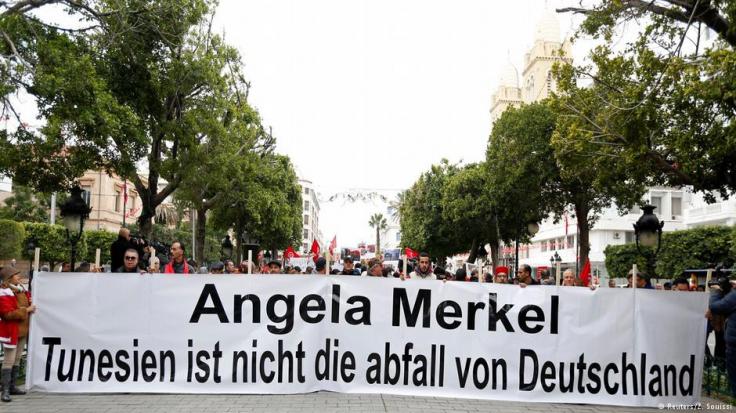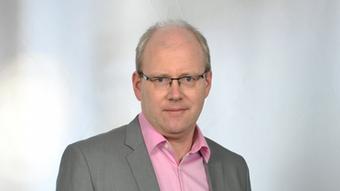DW: - "Opinion: Tunisia, take back your jihadists!"

Radical jihadists are a burden for any state. Even a young democracy has obligations in this regard, says Kersten Knipp.
Tunisians are basically in agreement with most of the rest of the world: No one wants a jihadist. There's not a single country in the world that welcomes these pseudo-religious murderers and rapists. People will do anything they can to steer clear of them. And not just steer clear of them: What they'd really like is to see them behind bars.
By contrast, citizens of other countries may find it rather harder to understand why Tunisia should not have to take back criminals with Tunisian citizenship, as some Tunisians are suggesting. Why should they, the other states, be made to take responsibility for a Tunisian problem? Should the citizens of other countries have to suffer just because Tunisia doesn't want its dangerous criminals any more? An exaggeration for polemic effect, but a pertinent question nonetheless, after the terrorist attack perpetrated by Anis Amri.
It's already a scandal that a dozen people - Germans and international visitors - died at the Berlin Christmas market not just because of failures on the part of the German authorities, but also because it took so long to obtain Amri's papers from Tunisia. To now demand that other sons of the country who've turned out very badly should also remain elsewhere, as far from home as possible - this is not what international cooperation looks like.
A fragile young democracy
It's certainly true that Tunisia is a young democracy, one that emerged from a dictatorship. The country is economically weak, and that can easily impact on the stability of the constitutional state and its structures. This makes Tunisians' determination not to compromise when it comes to their judicial system, not to repeat the perversions of justice of the Ben Ali dictatorship, all the more admirable. It has set the bar high in electing to deal even with serious criminals in court according to clear constitutional standards, differentiating itself from most other states in the region. So the fact that they often cannot establish proof of the crimes jihadists have committed abroad is a serious problem for Tunisian courts: These radical returnees then remain at large. However, other countries, including Germany, also face the same problem.
Besides, weakness can be no excuse. Iraq and Syria are not exactly strong at the moment. Don't the demonstrators opposing the terrorists' return care about that? Would they rather their jihadist countrymen weakened these states instead of their own? Around 5,000 Tunisians have left to go on "jihad," primarily in the countries of the Middle East. If just a small number returned home, it would constitute a significant danger for Tunisia's young democracy.
But Syrians and Iraqis also dream of peace and stability. Holy warriors from their own countries are providing them with more than enough to deal with. It must be hard for them to understand why they should have to put up with terrorists from Tunisia as well. Similarly, Tunisia ought to feel challenged by the fact that two of its citizens carried out two of the worst terrorist attacks in western Europe last year, in Nice and Berlin. Can it be in a country's interest to be seen around the world as being uncooperative in dealing with terrorists?
Tunisia has an obligation
It's true that Anis Amri appears to have been radicalized in Europe – but it was in Tunisia that he took the first steps in this direction. That was where he began the criminal career which culminated, after spells in Italian prisons and German refugee camps, in the murderous truck attack in Berlin. And the German authorities had determined a full half-year earlier that this man should be deported.
Every country is responsible for its own citizens, and must take them back if they are declared personae non grata – with good reason – elsewhere. It's only then that a civilized country is adequately fulfilling its responsibilities.
Have something to say? Leave a comment below.
dw.com

